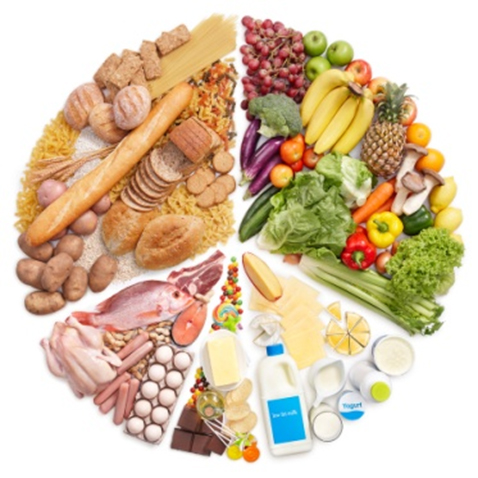Nutraceuticals
Antonella Bertazzo
Stefano Dall'Acqua
Mirella Zancato
 | |
 | Food analysis Food quality is determined by quali-quantitave presence of macronutrients, e.g proteins, lipids and carbohydrates as well as micronutrients (vitamins and minerals) which vary according to different applied processing techniques. |
read more
Now days particular attention is devoted to minor components such as oligosaccharides, bioactive peptides, nucleotides, free amino acids etc which are referred to posses multiple activities and are described as nutraceuticals. Therefore their quantitation in food items provides useful indications of relative nutritional value. A research project is dedicated to determine proteins and free amino acids variations in dairy products obtained in various fermented conditions with a specific focus on tryptophan and its metabolites, successfully used for the treatment of various diseases such as insomnia, fibromyalgia, migraine, depression etc. LC-UV, LC-FD and Mass spectrometry technologies are applied.
 | |
 | Metabolomic studies Tryptophan metabolism along kynurenine and serotonin pathways is implicated in several physio-pathological conditions |
read more
IDO (indoleamine-2,3-dioxygenase), TDO (tryptophan-2,3- dioxygenase), TPH (tryptophan hydroxylase) are the key enzymes transforming the essential amino acid into various metabolites; in particular, along the kynurenine pathway, kynurenic acid, anthranilic acid, picolinic acid, quinolic acid , 3-hydroxykynurenine are obtained ; they are involved in a variety of processes such as: antimicrobial response, neuropathology, antitumour defence and antioxidant activity. TPH is the rate-limiting enzyme in the serotonin (5-HT) pathway. 5-HT is described to play an important role not only at SNC level but also in the GI system by mediating motor activity, secretion processes and visceral sensitivity.
The aim of this metabolomic study is to elucidate the role of tryptophan derivatives on the onset and/or progression in GI inflammation states leading to pathologies such as irritable bowel system, ulcerative cholitis and colorectal cancer.

 | Isolation of bioactive constituents from Plants Nature is a source of new chemical entities that can be of inspiration for the development of new drugs... |
read more
The project deal with scarcely investigated plants with use in traditional medicine. Bioassay guided fractionation approaches are used. Dereplication by LC-MS and GC-MS analysis as well as by the use of different NMR approaches are also applied. Nepalese medicinal plants, African medicinal plants are studied.
 | |
 | Crop and agricultural by product as source of phytoconstituents for nutraceutical development Nutraceuticals are products containing food derived compounds with health promoting properties... |
read more
The focus of this project is the evaluation of possible crops and plant sources for the extraction of health promoting compounds. Specific crops and agriculture by products are considered as source of constituents. Particular focus is related to apple, pomegranate, and in particular to phenolic constituents and triterpene. Specific projects deal with cooperation of other departments (DAFNAE) with the study and development of glucosinolate containing extracts.
 | |
 | Development of plant derived products for agriculture The search for new more environmentally acceptable and less toxic products for pest management in agriculture is a crucial point. |
read more
In this international project in cooperation with groups of scientists working in the field of plant pathology and entomology we search for new bioactive constituents that can be used in agriculture.
read more
Metabolomic can be an innovative approach in the field. The project deal with metabolomic based studies aimed to depict mode of action, possible role also in healthy subjects of such products. Furthermore in cooperation with research groups of Molecular Medicine investigation of the complex role phytochemicals-microbiota is also explored with specific studies.
read more
Furthermore methods are developed to identify and quantify phytochemical and their metabolites in biological fluids (like plasma and urines) after intake of extracts or supplements in vivo. The techniques used are LC-MS for quantification (triple quadrupole)and elucidation of substances (ion trap). For different application, GC-MS, NMR, LC-DAD, LC-ELSD, LC-FLD can be combined for a multi technical approach, allow identification and quantification of different classes of natural compound.
read more
The adjustment of antimicrobial dosage regimen in patients undergoing renal replacement therapy (RRT) is based on pharmacokinetic parameters, so the in vitro models of RRT represent an rational strategy to understand their extracorporeal clearance. Antimicrobial dosage adjustment for patients with acute or chronic kidney disease undergoing extracorporeal renal replacement therapy (RRT) is a complex problem frequently under investigated for several drugs. In this setting, the rational approach for appropriate dosage regimen is fundamental, not only to achieve efficacy of pharmacological treatment, but also to avoid toxicity risks. In addition, when an antimicrobial agent is administrated, it has to be taken into account the emergence of resistant pathogen microorganisms. In presence of renal failure, both acute renal failure and end stage renal disease, the application of RRTs may consistently alter the clearance of drugs, in particular of those compounds that are normally cleared by the kidney. It follows that the drug dose (maintenance dose or loading dose) of given drug might be require significant modification during RRT. In this setting, the adjustment of antimicrobial dosage regimen in RRT patients represents a clinical therapeutic challenge because the pharmacokinetic parameters remain the sole basis to prescribe an appropriate dosage regimen. The purpose of this research project is to set up an in vitro models of RRT (artificial isolated organ systems) in order to investigate antimicrobial removal during extracorporeal circulation. In particular, it focuses on drug-membrane interactions (adsorption process characterization), changes in plasmatic antimicrobial level (concentration-time profile; drug exposure) and extracorporeal clearance characterization.








